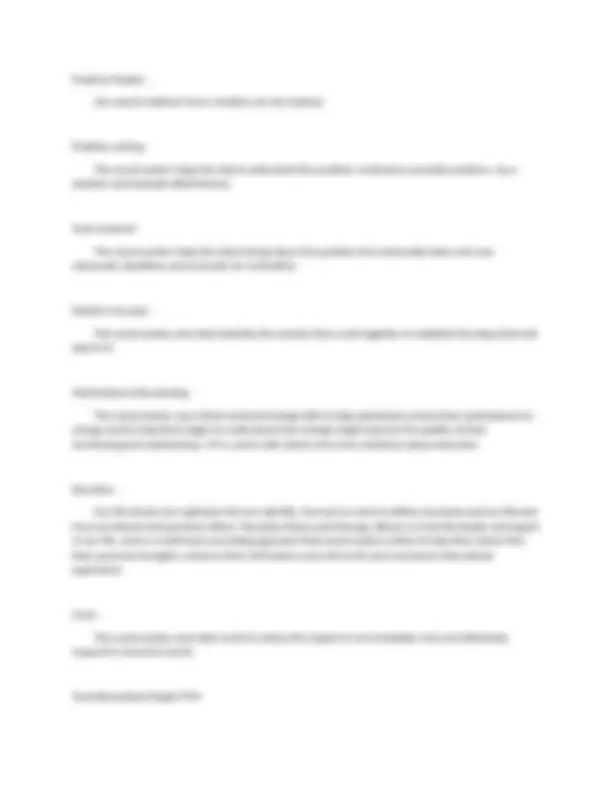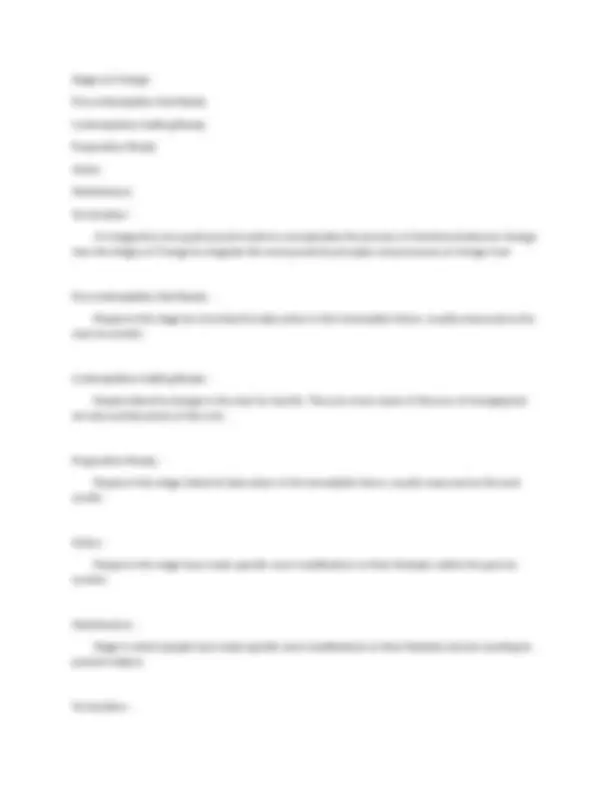





Study with the several resources on Docsity

Earn points by helping other students or get them with a premium plan


Prepare for your exams
Study with the several resources on Docsity

Earn points to download
Earn points by helping other students or get them with a premium plan
Community
Ask the community for help and clear up your study doubts
Discover the best universities in your country according to Docsity users
Free resources
Download our free guides on studying techniques, anxiety management strategies, and thesis advice from Docsity tutors
Social Work Theories, Practice Perspectives and Practice Models
Typology: Exams
1 / 5

This page cannot be seen from the preview
Don't miss anything!




heories - Are models that create conceptual structures for understanding human development, identity, social welfare systems and approaches to practice. Orienting Theories - Describe and explain behavior, often drawing from other disciplines as biology and psychology in an attempt to explain all aspects of social work from individual personality and family systems to large-scale societal issues like mental illness and poverty. General Systems Theory - Emphasizes that relationships between an individual and the groups, organizations, and societies in which he or she interacts. By taking cross-cultural elements and context into consideration, social workers gain a better understanding of human behavior within the context of a particular social environment. Psychodynamic Theory - Focuses on how internal and unconscious needs, drives and emotions motivate human behavior and affect emotional development. Assumes that both conscious and unconscious mental activity are at play and that internalized experiences from a person's past, in particular, the earliest years of life and the relationship with caregivers during infancy and childhood, may shape one's current self. By understanding the relationship between the individual and his or her experiences, social workers can identify a client's defense mechanisms, which are protective structures that the individual employs for emotional self-regulation. Social Learning Theory - Also known as behaviorism or behavior theory is based on the psychology of learning and the development of individual cognitive functioning. This theory allows social workers to identify a behavior that has become problematic for an individual and to then work toward change in order to improve the quality of a person's functioning and interpersonal relationships. Conflict Theory -
Focuses on the impact of power structures on individuals' lives, including the oppressions and injustices faced by groups in society. Though dominant groups maintain structural inequality through manipulation and control, social change can be achieved through conflict. This theory assumes that life is characterized by conflict rather that consensus, and it calls for social workers to attempt to reduce grievances between individuals or groups. Practice Perspectives - Provide a particular way of viewing and thinking about the practice of social work, offering a conceptual lens through which to consider social functioning and allowing social workers to offer more comprehensive guidance to their clients. Ecosystem Perspective - Assumes that humans needs and problems are generated by the interactions between people and their environments and considers the following:
Stages of Change: Pre-contemplation-Not Ready Contemplation-Getting Ready Preparation-Ready Action Maintenance Termination - An integrative, bio-psychosocial model to conceptualize the process of intentional behavior change. Uses the Stages of Change to integrate the most powerful principles and processes of change from Pre-contemplation-Not Ready - People in this stage do not intend to take action in the foreseeable future, usually measured as the next six months. Contemplation-Getting Ready - People intend to change in the next six months. They are more aware of the pros of changing but are also acutely aware of the cons. Preparation-Ready - People in this stage intend to take action in the immediate future, usually measured as the next month. Action - People in this stage have made specific overt modifications in their lifestyles within the past six months. Maintenance - Stage in which people have made specific overt modifications in their lifestyles and are working to prevent relapse. Termination -
Stage in which individuals are not tempted; they have 100% self-efficacy. Whether depressed, anxious, bored, lonely, angry, or stressed, individuals in this stage are sure they will not return to unhealthy habits as a way of coping. Their behavior has become an automatic habit.